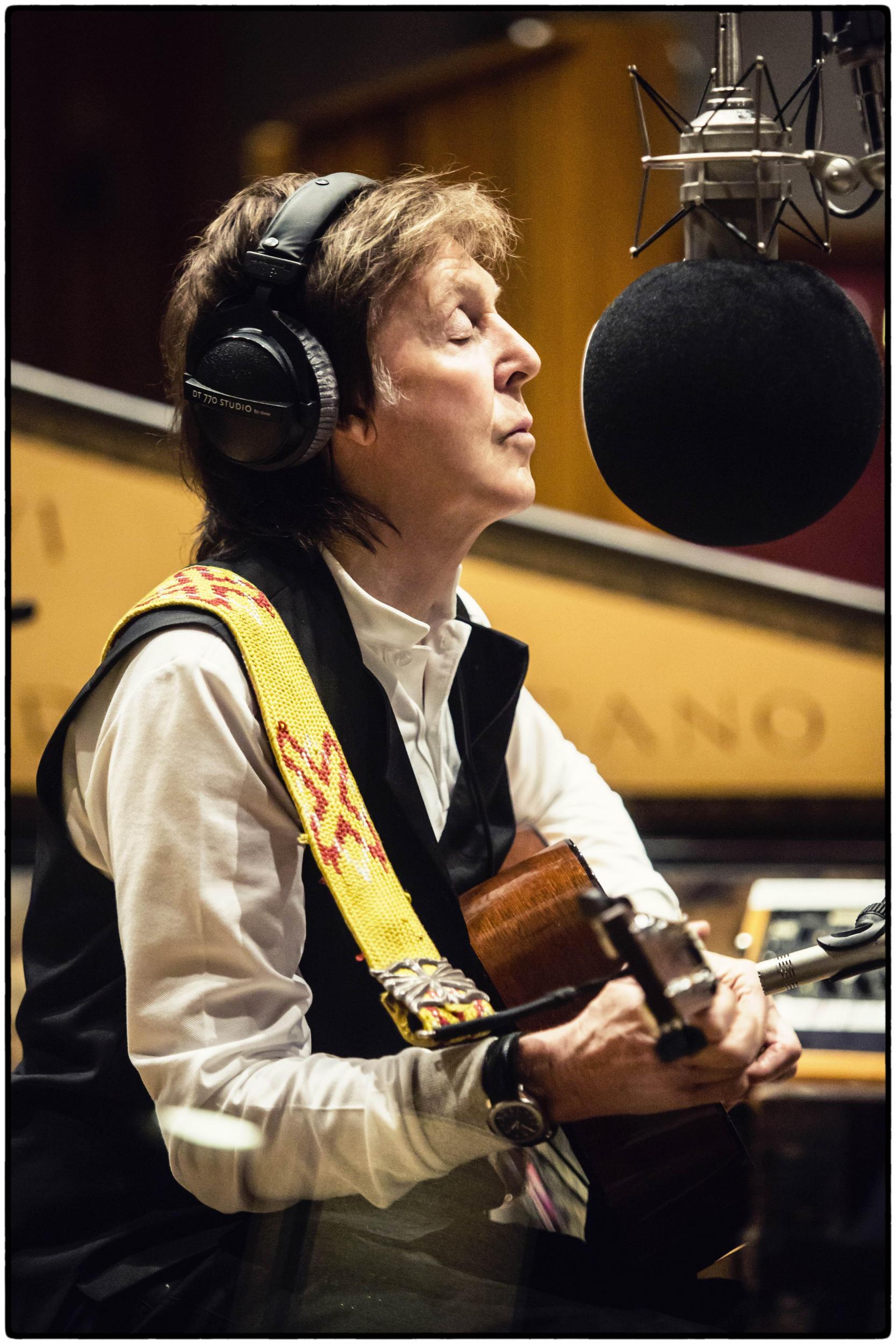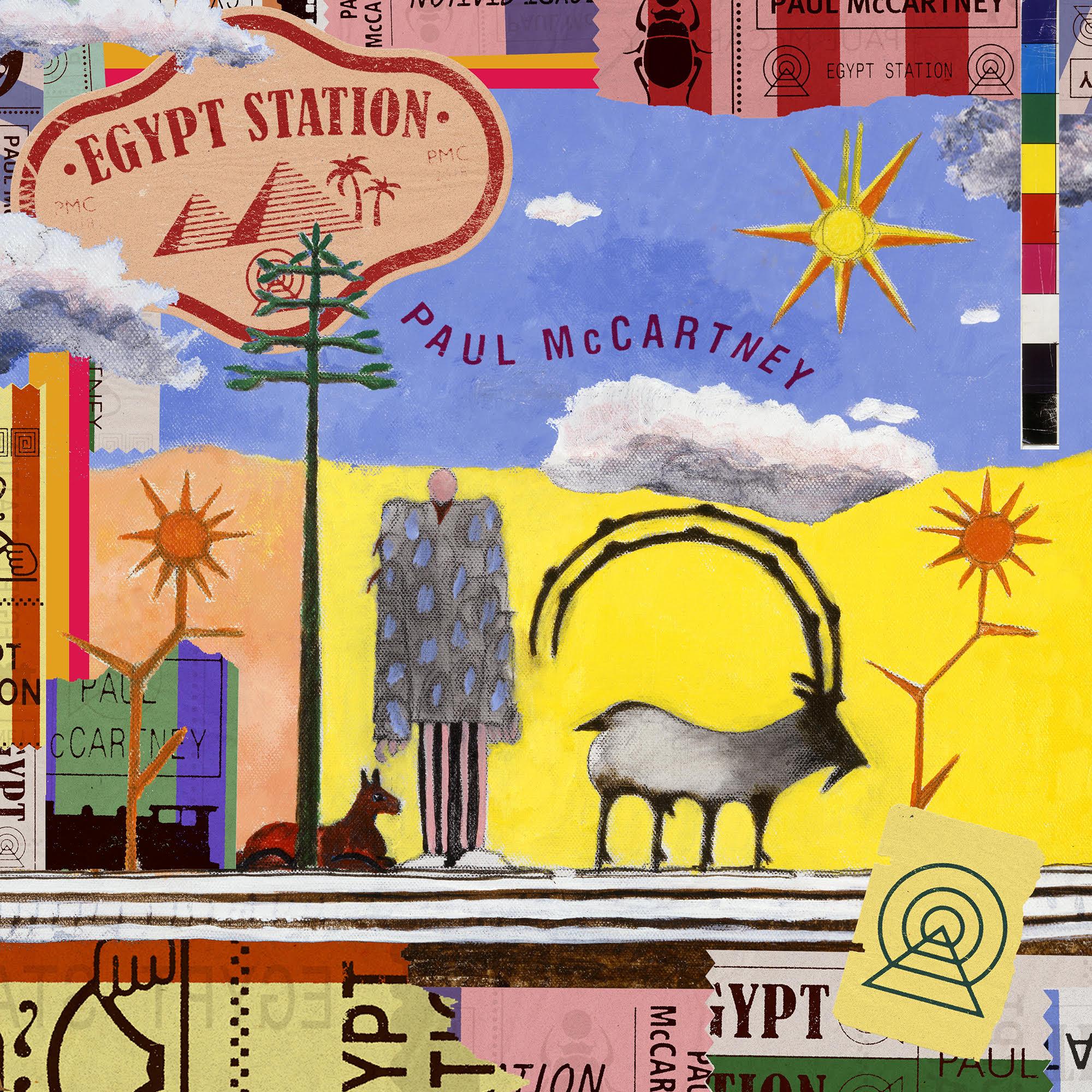Paul McCartney: What makes the most successful songwriter in pop music history want to keep on releasing albums?
Over the past few months, Beatlemaniacs and their ilk have been engaged in a near-ceaseless chorus of 'Should he?' or 'Shouldn’t he?' with the most cynical among them asking 'Why even bother?'
Your support helps us to tell the story
From reproductive rights to climate change to Big Tech, The Independent is on the ground when the story is developing. Whether it's investigating the financials of Elon Musk's pro-Trump PAC or producing our latest documentary, 'The A Word', which shines a light on the American women fighting for reproductive rights, we know how important it is to parse out the facts from the messaging.
At such a critical moment in US history, we need reporters on the ground. Your donation allows us to keep sending journalists to speak to both sides of the story.
The Independent is trusted by Americans across the entire political spectrum. And unlike many other quality news outlets, we choose not to lock Americans out of our reporting and analysis with paywalls. We believe quality journalism should be available to everyone, paid for by those who can afford it.
Your support makes all the difference.Today Paul McCartney releases his seventeenth studio album, Egypt Station. That’s not including his seven LPs with Wings and numerous compilation, soundtrack, and classical records since The Beatles’ disbandment in 1970.
The 76-year-old McCartney is, by far and away, the most successful songwriter in pop music history – not to mention the most commercially viable ex-Beatle, having outsold his former bandmates by tens of millions of singles and albums.
But since the June announcement of McCartney’s first LP of original songs since 2013’s New, the blogosphere has been rife with debate about his contemporary artistic significance and his abiding need for creating new material. Over the past few months, Beatlemaniacs and their ilk have been engaged in a near-ceaseless chorus of “Should he?” or “Shouldn’t he?” with the most cynical among them asking “Why even bother?” After all, McCartney’s place in rock’s pantheon of greatness is unwavering, and his personal wealth outpaces nearly the whole of the music industry – with his closest rival being Andrew Lloyd Webber, who trailed him in NME’s most recent accounting of such things.
With the release of Egypt Station, McCartney is poised, yet again, to parade his musical might for old and new fans alike. His recent turn on James Corden’s Carpool Karaoke was a masterstroke of public relations, no doubt contributing to the anticipation that has greeted Egypt Station’s release. But for every giddy fan singing along with the album’s tongue-in-cheek “Fuh You”, there are plenty of others wondering aloud about his motivations.
Surely McCartney has nothing left to prove at this late date? After all, we’re only a few years removed from his surprising, twilight collaboration with Rihanna and Kanye West on the top-five hit “FourFiveSeconds”. For a man with 32 number-one Billboard singles under his belt, scoring a hit song with the likes of Rihanna and Kanye should be nothing more than icing on the cake for pop music’s old master. Right?

On the contrary. Given the nature of McCartney’s craft and his approach to songwriting – indeed, to art in general – to consider his nearly six-decade career in that context is misleading. For McCartney, it has always been the work that matters, the artistic impulse that drives him back into the studio for one more stab at greatness.
There’s a mid-Sixties McCartney anecdote that is particularly telling in this regard. Shortly before the release of The Beatles’ Revolver, he was anxious to show the world what the Fab Four had been cooking up in the studio. With John Lennon in tow, he sought out Bob Dylan, who was on layover at a London hotel before embarking on his latest European tour, to play the American folk hero an acetate of “Tomorrow Never Knows”. McCartney couldn’t wait to get Dylan’s reaction to The Beatles’ most radical, most experimental creation. After all, The Beatles had been Dylan aficionados of the highest order, playing his records in heavy rotation as they crisscrossed the States during the high tide of Beatlemania.
“Oh, I get it,” Dylan said blankly after listening to “Tomorrow Never Knows”, “you don’t want to be cute anymore.” Quite suddenly, McCartney felt that he had been put in his place, that to people like Dylan – artists whom The Beatles had revered, and had even engaged in a kind of hero worship – they were a mere pop act. Worse yet, they were still those four Mop-Tops in Dylan’s eyes, the product of good looks, catchy tunes, and prodigious marketing.

McCartney was reportedly crestfallen, and understandably so. What Dylan didn’t quite get was that McCartney was never a mere pop sensation, and he certainly didn’t think of himself or the work of The Beatles in that fashion. Rather, he saw himself as an artist, and an evolving one at that. To his mind, Revolver was only the latest growth spurt that would eventually see the band reach even greater heights with Sgt Pepper’s Lonely Hearts Club Band and The White Album.
And while music critics were merciless at times with his post-Beatles work, particularly Wings, McCartney has enjoyed glowing reviews for such LPs as Ram, Band on the Run, Tug of War, Run Devil Run, and Chaos and Creation in the Backyard, among others. And he has carried out some of his finest work with Martin Glover (Youth of Killing Joke) as The Fireman, a collaboration that has produced such experimental albums as Strawberries Oceans Ships Forest and Electric Arguments. And when he’s not making records, he’s been known to be an accomplished painter and, like his fallen friend John, a clever sketch artist. In short, he’s nearly always lost in the act of making something.
When we understand Egypt Station as McCartney’s latest attempt at exploring the mystery of creation – that he assails his craft with the heart of an artist – then his yearning for going back, time and time again, into pop music’s breach makes perfect sense. As with the most celebrated artists of pen and palette – the prolific ee cummings and Pablo Picasso come readily to mind – the Beatle has been on a lifelong search for that certain something, a quality of achievement likely unknown even to himself. Years ago, McCartney confessed that he is never really sure about what goes into a hit-making composition. Speaking of the UK chart-topper “Mull of Kintyre”, he admitted that “the song touched me, but I wasn’t sure it was everyone’s cup of tea”.
It was violin prodigy Yehudi Menuhin – another world-breaking 20th century musician in his own right – who taught us that any artist’s life is invariably an unfinished journey, that the most authentic creative life is about embarking upon a personal rite of passage without a destination or end. The concept of the “unfinished journey” was so central to Menuhin that he adopted the phrase as the title of his autobiography. “To play great music,” Menuhin once remarked, “you must keep your eyes on a distant star.”
Love it or hate it, Egypt Station is merely McCartney’s latest attempt at capturing lightning in a bottle. He will likely be no more or less satisfied with his new LP than he was with nearly any of the touchstones of his creative past – even ones like, say, Rubber Soul or Abbey Road that have become household words. Only time, it seems, will succeed in stopping McCartney. Until then, he’ll go on searching for that distant star.
Egypt Station is out today on Capitol Records
Kenneth Womack is dean of the Wayne D McMurray School of Humanities and Social Sciences at Monmouth University and the author of numerous books about The Beatles. His latest book, Sound Pictures: The Life of Beatles Producer George Martin (The Later Years, 1966-2016), was released this week by Orphans Publishing

Join our commenting forum
Join thought-provoking conversations, follow other Independent readers and see their replies
Comments